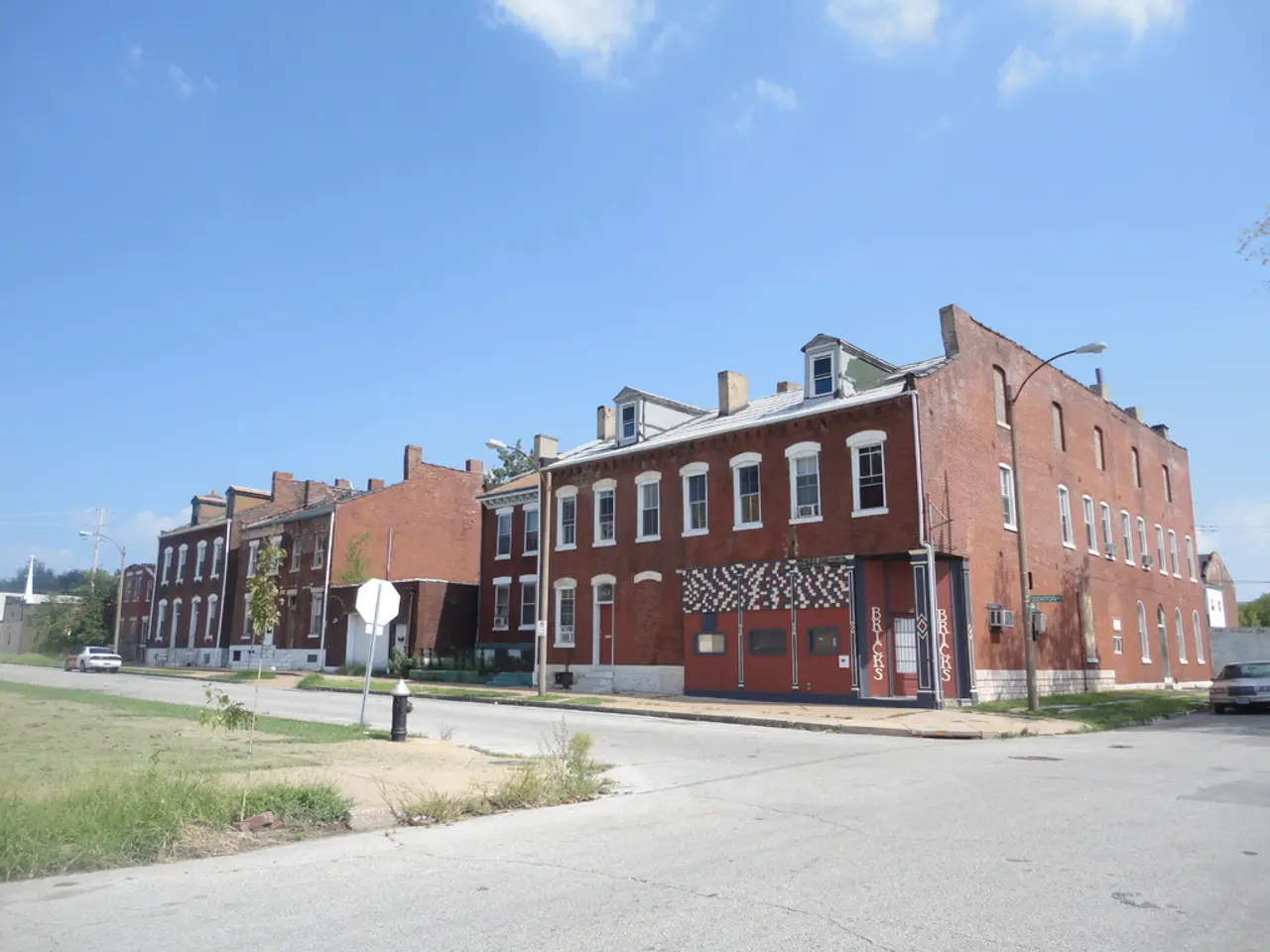City Council in Rockville rejects rent control measures, leading to a significant community reaction
Rockville, a city in Maryland, has rejected rent stabilization measures as of mid-2025, a decision that has sparked strong tenant and community dissatisfaction [1][3][4]. The Rockville City Council voted 5-2 against implementing rent control or rent stabilization, citing fears that such measures would deter new housing investment and development within the city.
This decision contrasts with nearby Montgomery County, which passed permanent rent stabilization in 2023. Montgomery County's rent increase allowance for 2025 is set at 5.7%, down from 6% in 2024 [2]. However, Rockville, as a municipality with its own government, is not subject to this county-level legislation.
Community Impact
The rejection of rent stabilization has provoked strong tenant and community dissatisfaction in Rockville. Residents have reported significant rent hikes, such as Lauryn Cave, a local educator, who shared that her rent has increased by $500 in the last two and a half years [3]. This financial strain, particularly for fixed-income individuals and public service workers, has been a cause for concern.
Pro-rent stabilization advocates argue that rent control could help mitigate affordability pressures and prevent displacement, but face opposition framed around economic and developmental concerns by landlord and developer groups [1][3]. For instance, more than a dozen residents chanted "Rockville renters united!" outside the Huntington at King Farm Apartments [5].
Housing Market Revenues and Development Implications
The Apartment and Office Building Association of Metropolitan Washington (AOBA) strongly opposed rent stabilization, stressing that caps on rent increases reduce incentives for new housing construction and investment in the city [1]. Rockville’s City Council majority shares this view, favoring policies aimed at increasing housing supply rather than imposing rent caps. They cite ongoing efforts including housing assistance programs, zoning adjustments, and affordable housing incentives as alternatives to rent control [4].
Future Implications
Without rent stabilization, Rockville may continue to experience rising rents and potential affordability issues, fueling tenant activism and community pressure. The council’s approach suggests a continued focus on expanding housing stock rather than controlling rents directly, which could lead to longer-term changes in the housing landscape depending on development successes.
The opposition to rent control leaves Rockville residents subject to more volatile rental markets compared to other parts of Montgomery County where rent stabilization exists, possibly exacerbating economic disparities within the region [1][2][3]. If Rockville experiences a similar decline in housing market revenues as Montgomery County, Councilmember Van Grack fears they will not be able to help the people most in need [6].
Councilmember Adam Van Grack believes that rent control could hurt the city's growth and pointed to a projected near $70 million dip in housing market revenues in Montgomery County, which has rent stabilization [6]. Izola Shaw, who also voted in favor of rent stabilization, stated that she has had 15 families reach out to her with double-digit rent increases in the past two weeks [7].
However, not all council members have commented publicly on the vote. Councilmember Jackon, Councilmember David Myles, Mayor Ashton, Fulton, and Valeri did not provide a comment at the time of publication [7]. Wendy Selnick, a renter aged 74, expressed concern about her future rent increases, as she has a fixed income [3].
In summary, Rockville's rejection of rent stabilization reflects a prioritization of housing development over immediate rent limits, which has sparked strong community concern about affordability and housing security. The city's future housing affordability will likely depend on the effectiveness of supply-side policies rather than rent income regulation [1][3][4].
The rejection of rent stabilization in Rockville has led to a intense general-news debate, with pro-rent stabilization advocates arguing that it could help alleviate affordability pressures, while opponents, such as the Apartment and Office Building Association of Metropolitan Washington, assert that caps on rent increases would hinder new housing development and investment [1].
In contrast, Montgomery County, which implemented permanent rent stabilization in 2023, faces concerns of potential economic disparities within the region as Rockville residents may now be subject to more volatile rental markets compared to county residents [1][2][3].








